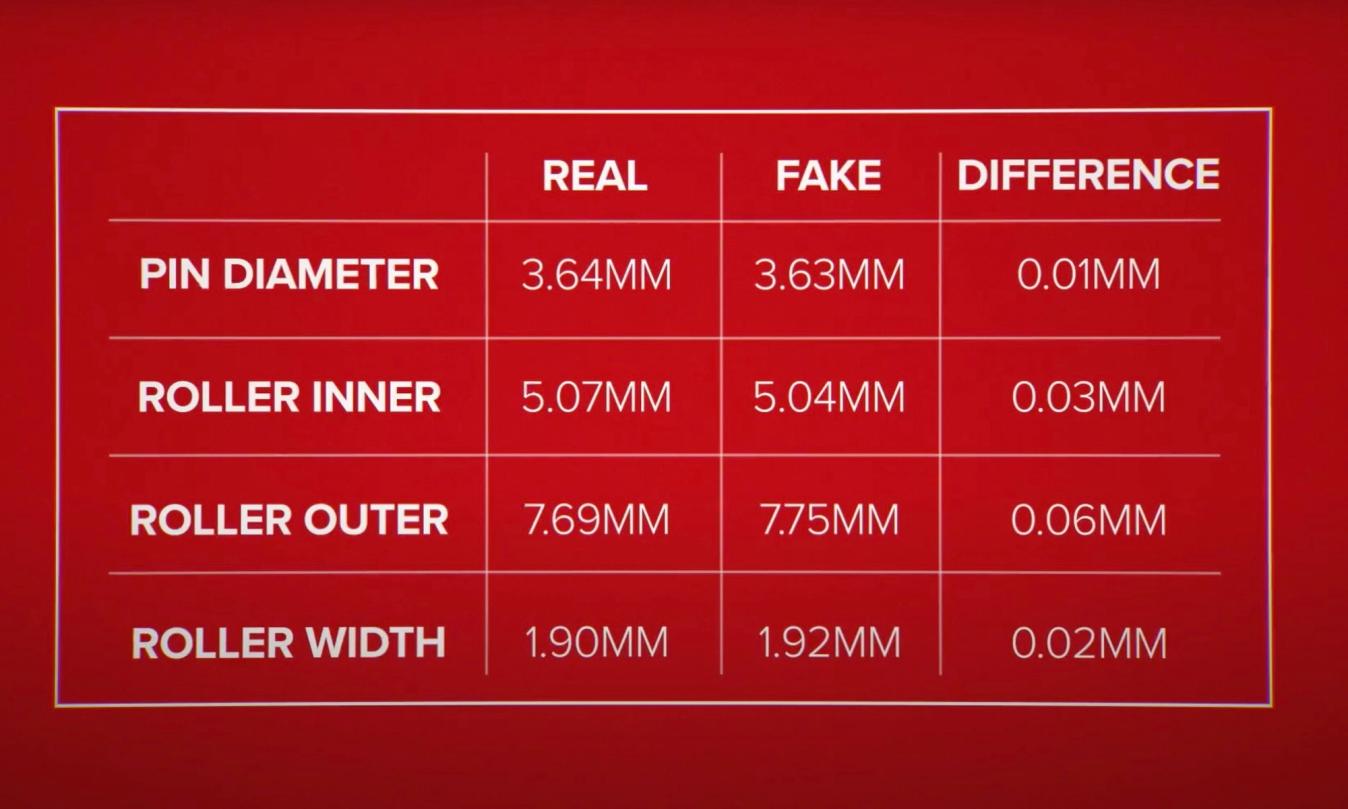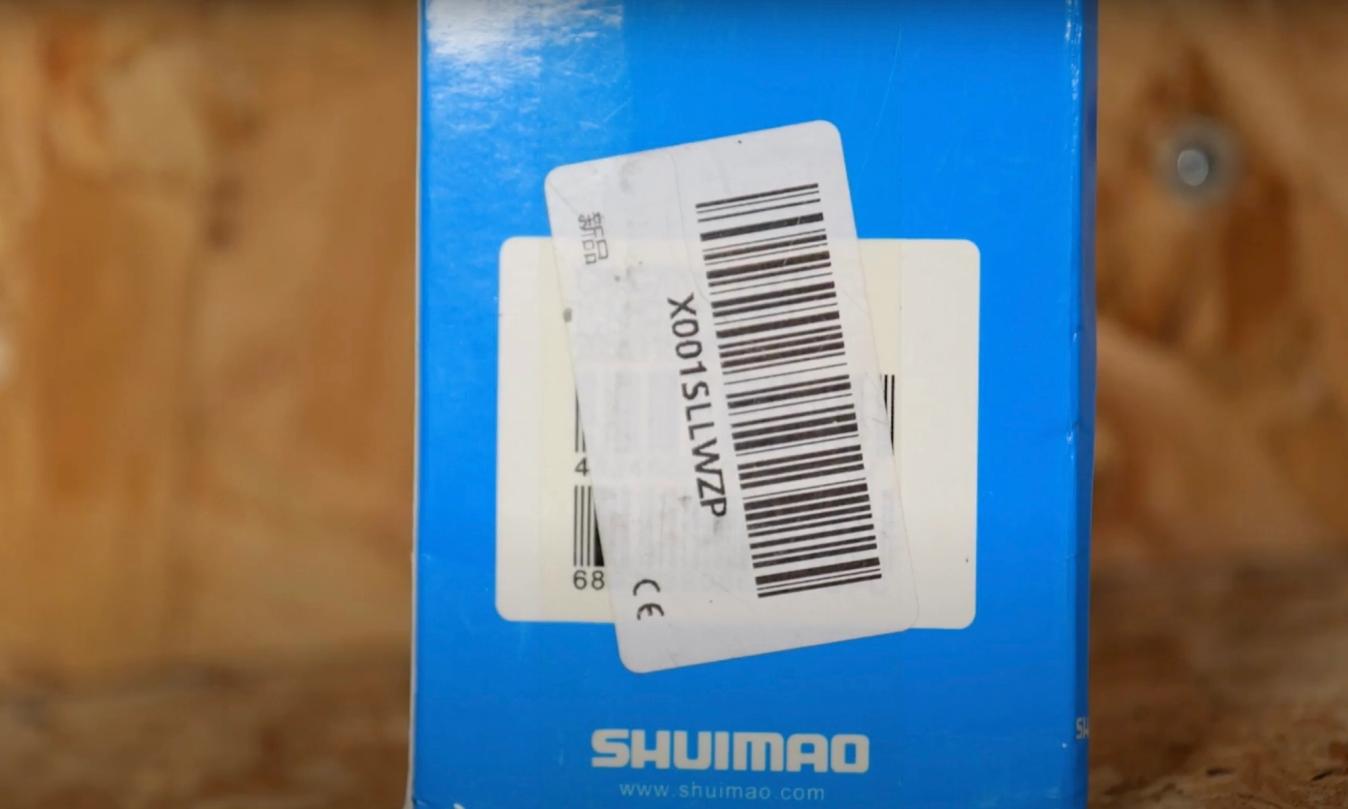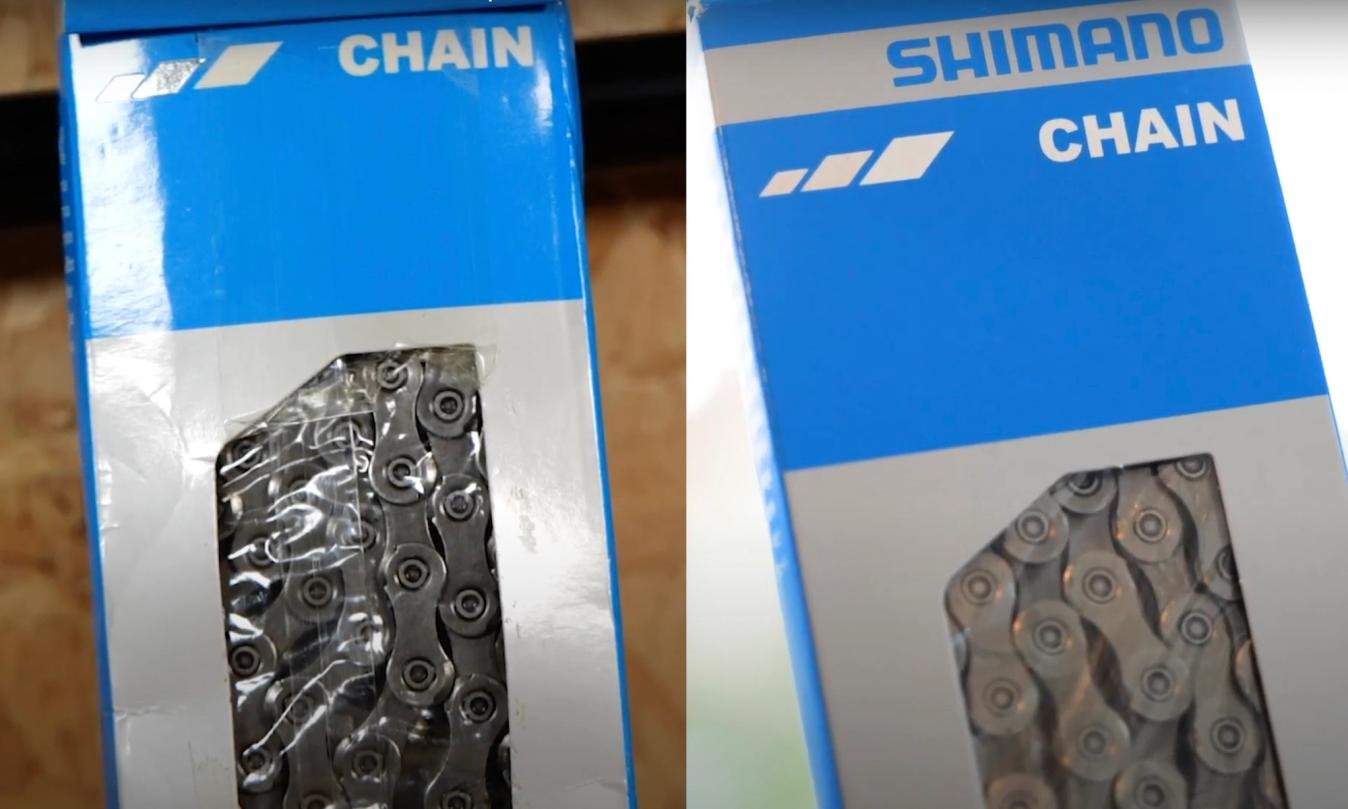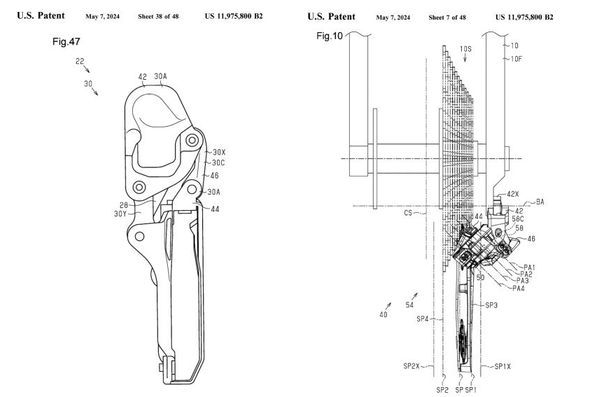Does cycling have an issue with counterfeit goods?
Can you be sure that what you are buying is the real deal?
Alex Hunt
Junior Tech Writer
Alex Paton recently bought what he thought was a genuine Shimano chain from a seller on Amazon. It was only once it had arrived that he realised that it was in fact a counterfeit chain that was packaged as if it was from Shimano. With more and more of us shopping online, Alex takes a deeper look into whether this is something to be concerned about.
How to spot a fake product
Some counterfeit products have some telltale signs such as using similar but slightly different packaging. The chain that Alex bought online from a glance looks to be identical to a genuine Shimano one. Under closer inspection the brand name was different and only visible on the rear of the packet and the product item code differed by one letter.
.jpeg?w=1348&auto=format)
© GCN
It can be hard to spot from images online but there are some small differences between the genuine one and the counterfeit one
These are all things that wouldn’t be too hard for most of us to spot if we were hands-on with the product but if you are shopping online it can be a lot harder to tell. There have even been reports of fake goods coming in the correct packaging making it even harder to spot.
The best way to protect yourself against ending up with fake goods is to buy from a reputable retailer that either imports their stock directly from the brand or that uses a recognised importer.
Are they physically different?
Unless you have a metallurgy lab at your disposal it can be hard to know what the differences could be between the real product and the fake one. When Alex weighed the fake chain it came in at 259 grams or just 2 grams different from what Shimano quoted. This difference is small enough to not be considered meaningful.
- Watch more: Counterfeit Carbon - Spotting Fake Bike Parts
The issue has more to do with knowing what you are buying. With a Shimano chain, you know what it is made from and you know that it has been tested extensively to ensure it will hold up to the demands of its environment.

Alex measured both a genuine and a counterfeit chain to see just how they stacked up
When you buy a counterfeit product you cannot be sure what materials have been used and their suitability. Although they may look similar or in some cases identical it is hard to trust the product without knowing its origin. Things such as protective coating or treatments could be excluded from the manufacturing process causing the fake product to be more susceptible to failure. When you have a counterfeit product you simply do not know what you have.
What issues can you run into with a fake product?
If we take Alex’s chain as an example any issues that might come from using the chain are not going to be dealt with with the same support as a genuine product. Big brands like Shimano are constantly trying to ensure their products are safe to use by the customer both for legal trading reasons as well as for brand integrity.
For Alex he might be able to deal with Amazon as this was where the product was sold however if you find yourself buying counterfeit products from independent websites or shops you are likely to find yourself on your own with no support.
Shimano spends millions of dollars on quality control to ensure that each product will hold up to its intended use. As we have recently seen, if the brand finds that there are failings in the product a recall is issued to prevent any further accidents, injuries, or product failures. This is not something that will happen with fake goods leaving you at risk should something go wrong.
Is this just an issue for online sales?
Unfortunately not. Alex spoke to Justin Hoy of Pronto Bikes to get the opinion of a local bike shop owner. Although you are less likely to run into issues in person as not only are you able to check over the product before you buy it but also physical shops are less likely to trade in counterfeit products in the first place.
Shimano is imported to the UK through a company called Madison that distributes the products to local bike shops. If you ask the shop where they get their Shimano goods from and it is somewhere other than Madison make sure to check that they are a genuine distributor.

© GCN
Some bike shops have been offered counterfeit goods that scan in under the same barcode as the genuine product
Although it is uncommon in bike shops, Hoy did point out that it does happen. He tells the story of being offered 100 fake chains that all came in genuine Shimano packaging. When questioned on their origin this was left undisclosed. Although in this instance the fake goods were identified and rejected you might not be so lucky every time.
Why should I care about fake goods when they look the same but are cheaper?
A fake chain like the one Alex bought retails for about half the cost that a genuine Shimano one. The cost of manufacture of the chain is going to be relatively small for Shimano however the cost of the chain funds the research and development of the product as well as the quality assurance.
The other thing that the cost of genuine products enables is for brands like Shimano to sponsor WorldTour teams. Investing in the real product keeps the money in cycling, funding the development of new and better products.
When you end up with a fake product none of the money they receive is spent on quality control or testing and none of it is reinvested back into the cycling community. Although they might be cheaper buying counterfeit products is a short-sighted decision that ultimately harms the health of the industry.
What brands are most susceptible to counterfeiting?
Counterfeit good look to replicate premium goods at a lower price point. There is little point in trying to counterfeit entry-level and budget parts as the markup just isn’t there. As you move into a more premium price range from 105 upwards the potential profitability of counterfeit goods increases. It is these product ranges that are most at risk of being counterfeited.

© GCN
It is most likely that mid tier upwards are most susceptible to fakes
The same applies across the industry with premium frames, wheels, and clothing all susceptible to counterfeit replicas. Any high-ticket item carries with it the chance to make a high profit through fake goods.
To ensure you aren’t caught out it is best to deal with reputable dealers that are listed on the brand's website. This way you know that you are buying from somewhere that the brand itself approves.
What are the brands themselves doing about it?
Shimano has its own anti-counterfeit programme where they liaise with relevant authorities to help facilitate administrative and criminal investigations against counterfeit goods manufacturers and distributors. They also have technical elements on packaging that make it hard to replicate by counterfeiters. Shimano also has a dedicated app that allows you to scan products to help with the identification of counterfeit goods.
- Read more: Complete guide to road bike groupsets 2023
Most premium brands also have guides on their website to help consumers distinguish between a genuine product and a fake one. One thing Pinarello allows you to do on its website is to check that the serial number of a frame is genuine.
It does seem that a lot of the big brands are doing what they can to prevent counterfeit goods becoming a widespread issue however there is only so much they can do. Buying from reputable sources is the easiest way to protect yourself from fake goods however this seems to be a problem that could be set to get worse before it gets better.
Do you have any experience with counterfeit cycling goods, let us know your stories in the comments down below.











.jpg?w=600&auto=format)
